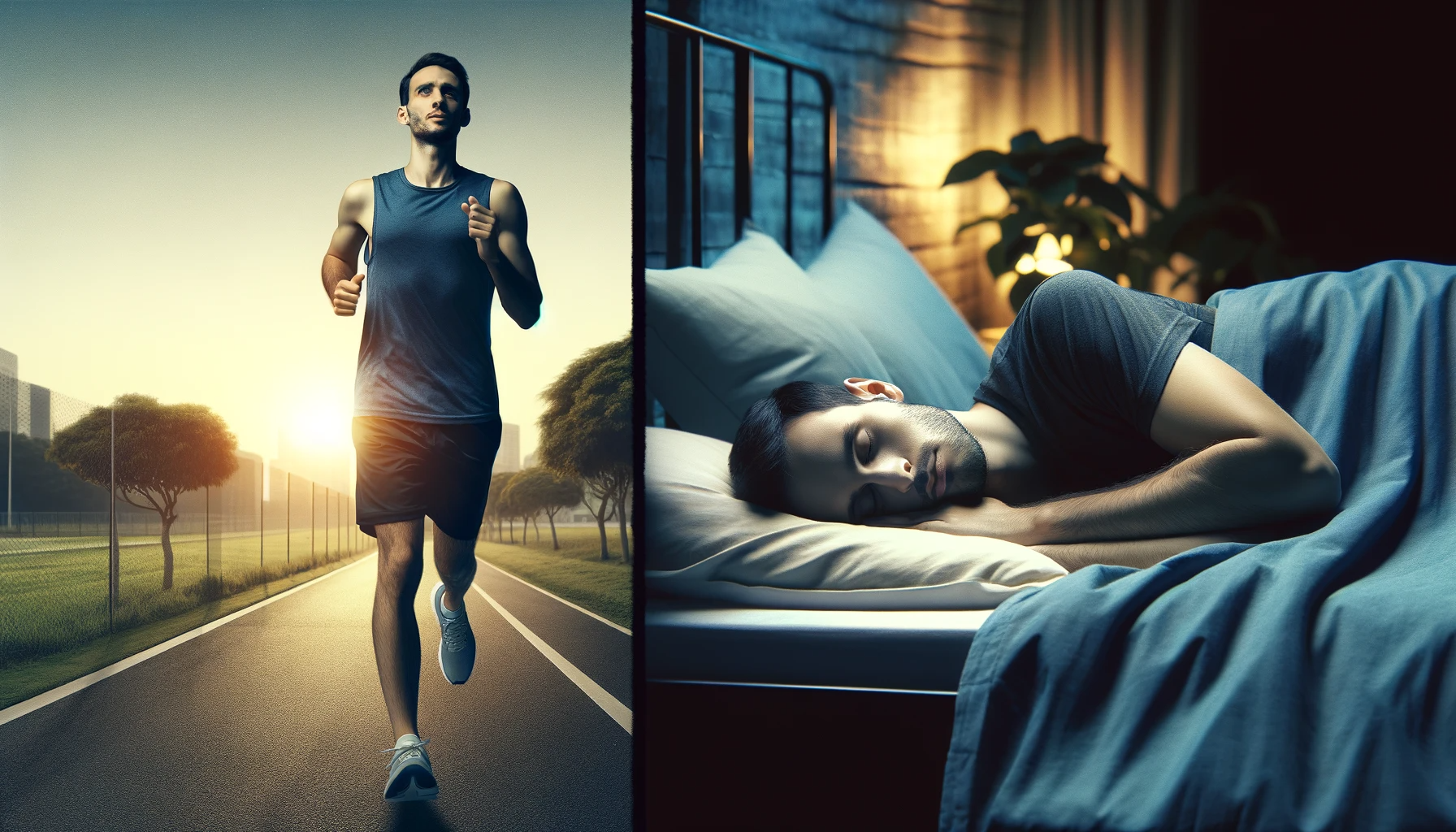Impact of Physical Activity on Sleep Quality
The synergy between physical activity and slumber is a topic of increasing interest in the wellness community. Engaging in regular physical activity not only bolsters overall health but also plays a significant role in enhancing the quality of our rest.
The Dynamic Duo: Physical Activity and Nightly Rest
Physical activity and sleep have a two-way relationship, each greatly affecting the other. Regular exercise is great for helping you fall asleep faster and enjoy deeper sleep. For example, aerobic exercises like jogging or swimming warm up your body, and then your body cools down. This cooling helps your body get ready for sleep. Top Exercises for Enhanced Slumber Quality
- Aerobic Exercises: Activities like brisk walking, running, or cycling amplify oxygen circulation, aiding in sleep regulation.
- Yoga and Stretching: These activities promote relaxation and stress reduction, leading to more restful nights.
- Strength Training: Moderate resistance training can also contribute to better sleep, especially when done consistently.
However, timing is crucial. Vigorous activities should be avoided close to bedtime to prevent a surge in alertness. It’s best to avoid Aerobic and Strength exercises a couple of hours before bed.

Combating Sleep Disturbances Through Exercise
Regular exercise plays a pivotal role in mitigating sleep-related disorders. For instance, consistent aerobic activities have been found to improve both the onset and duration of sleep for those with insomnia. Additionally, exercises focusing on respiratory strength can offer relief to individuals dealing with sleep apnea, leading to fewer interruptions in their nightly rest.
Accounting for sleep and workouts throughout the day
It’s crucial to establish a consistent routine for both working out and sleeping to maximize their effectiveness. Developing a habit of exercising at the same time each day, alongside adhering to a regular sleep schedule, conditions your body to recognize when it’s time to be active and when to wind down. This disciplined approach can significantly enhance the efficiency of physical activity and rest, serving as an invaluable tool in your daily regimen.
Striking a balance between physical activity and sleep involves strategic planning. Ideally, find a workout schedule that aligns with your natural rhythms—energizing morning workouts or early evening routines can be particularly effective. Furthermore, integrating relaxation techniques after exercising can amplify the sleep-enhancing effects.
Conclusion
In conclusion, the interplay between physical activity and sleep is a key aspect of maintaining a balanced and energized lifestyle. By thoughtfully integrating regular, suitable exercises into your daily routine, you can significantly enhance the quality of your nightly rest and overall vitality. To enhance your sleep further check out the ideal sleeping condition and how much sleep you going to need.
Frequently Asked Questions
How does exercise affect sleep?
Exercise improves sleep quality by helping you fall asleep faster and deepening your sleep. It raises your body temperature during the activity, then lowers it afterward, which aids in the body’s natural sleep readiness.
Should I workout on 2 hours of sleep?
It’s not recommended to workout on just 2 hours of sleep. Lack of sleep can lead to decreased performance and increased risk of injury. It’s important to prioritize rest to allow your body to recover.
When is the best time to exercise for sleep?
AThe best time to exercise for improving sleep is usually in the morning or afternoon. Evening workouts can be beneficial too, but high-intensity exercises should be avoided close to bedtime as they might disrupt the ability to fall asleep.
Can lack of exercise cause sleep problems?
Yes, lack of exercise can contribute to sleep problems. Regular physical activity is crucial for maintaining healthy sleep patterns and improving sleep quality. It helps regulate the body’s natural sleep-wake cycle and reduce stress and anxiety, which are common culprits of disturbed sleep.

